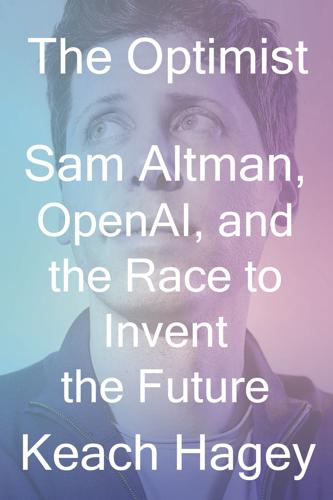
The Optimist: Sam Altman, OpenAI, and the Race to Invent the Future
by
Keach Hagey
Published 19 May 2025
Louis Post-Dispatch (newspaper), 40–41 Stanford Daily, The (newspaper), 56, 63 Stanford Review, 56, 131 Stanford University AI lab at, 90 annual competition held by, 182 BASES (Business Association of Stanford Entrepreneurial Students), 60 courses at, 55, 131 Education Program for Gifted Youth, 173 electric vehicle project, 57 endowment of, 155 FroSoCo (short for Freshman Sophomore College), 55, 57 Full Moon on the Quad, 92–93 generous student leave policy, 91 program in India, 64 StartX startup accelerator, 90 Summer Research College program, 57 YC Startup School online course at, 122–23, 194, 234 startups bankruptcies, 31, 87–88, 145, 205 discrimination in, 70 the first venture-funded startup, 72 founders as kings, 6, 60, 65, 68, 70–75, 87, 95 normalization of starting a startup, 70, 150 “RIP Good Times” deck, 117, 123 Startup School online course, 122–23, 194, 234 unicorns, 150, 311 see also investing; Sequoia Capital; Y Combinator (YC) StartX, Stanford’s startup accelerator, 90 Stiegler, Marc, 140, 199–200 Stone, Zak, 76, 77, 82 “Strawberry” (o1), 284, 309 Streit, Steve, 126–28, 134 Stripe, 4, 16, 123, 125, 136, 139, 150, 152, 157–58, 172, 175–76, 189–90, 246, 251 Stross, Randall, 133 StumbleUpon, 174 Suleyman, Mustafa, 146–47, 277 Summer Founders Program and Angel Day, 62, 64, 68–70, 75–82 Summers, Larry, 294, 303 Sun Microsystems, 230 Sun Valley Resort, 228–29, 263 Sunak, Rishi, 274 Superalignment team, 284, 305–6 superhuman machine intelligence (SMI), 170 superintelligence, machine, 143, 145, 164, 167, 170, 309, 315, see also AI (artificial intelligence) Superintelligence: Paths, Dangers, Strategies (Bostrom), 5, 163–66, 167–68 Supreme Court, 26, 52 Sutskever, Ilya, 169, 178–88, 189–96, 209, 211, 217–23, 244–45, 266, 287, 282–94, 304–5, 308–10, 312–13 Swartz, Aaron, 63, 76, 81, 160n SXSW (South by Southwest), 118–19 Szabo, Nick, 142 Tallinn, Jaan, 5, 144, 168, 300–301 Talve, Susan, 43–44 Tamarine Asian fusion restaurant, Palo Alto, 92 Tan, Garry, 236 Tana, Evan, 96, 102, 121 Tang, Nini, 95–96 taxes, 22, 34–35, 53, 206, 256 Tay the chatbot, 270 Taylor, Bret, 293 Teach Yourself Visual Basic in 24 Hours, 56 “teach-ins,” 94 tech bros cosmic conversations of, 147, 260, 314–15 hackers/hacking, 3, 57, 63, 68–70, 160n, 162 love of Burning Man, 1, 198–99 love of cars, 26, 51 as mostly college drop-outs, 62, 88, 91–92, 96, 108, 113, 124, 132, 175, 179, 217–18 racism among, 164–65 sci-fi, 3, 43, 47, 140, 199–200, 214, 220, 307–8 space colonization, 144, 147, 170–71 techno-utopianism among, 205, 256–57 WhatsApp group of tech CEOs, 289 wrestling among the, 109 see also cryptocurrency tech industry Big Tech companies, 182, 185, 197, 299, 308 dot-com bubble of the late 1990s, 73, 87, 93 lobbying by the, 109, 144, 179, 274, 292, 300–301 the massive valuations of tech companies, 71, 73, 138–40, 152, 290 nanotechnology, 144, 164 semiconductor industry, 72–73, 132, 298 think tanks in the, 142, 144, 267, 299–300 “women in tech,” 42, 70, 203, 252, 271 see also innovation; software development; startups TechCrunch (news site), 161, 259 technological progress, see innovation techno-utopianism, 205, 256–57 Teespring T-shirt-making startup, 156 Tegmark, Max, 145, 168–69, 208 telepresence, 210 Teller, Sam, 171 Temple Israel, 24, 25 Terminator film franchise, 200 Tesla, 153, 167, 194, 223–26, 234, 255 Test of Time Award, 305 TextPayMe, 82 The Game (rapper), 102 “TheFacebook,” 60, see Facebook Theranos, 108 Thiel, Peter, 1–7, 10, 16–17, 125, 134–48 contributions to Trump presidential campaigns, 203–4 data-mining company, 217 Facebook and, 131, 204 Founders Fund venture firm, 2, 6, 132, 139, 147, 226 founding of the conservative Stanford Review, 56, 131 From Zero to One (with Masters), 132, 230 Halcyon Molecular, 257–59 Helion Energy nuclear fusion startup, 13, 136, 207, 259, 280, 298 his “Founders Fund” venture firm, 2, 6, 132, 139, 147, 226 Inflection AI, 277 PayPal, 93, 125, 131, 136, 140, 147, 161, 171 personal beef with Gawker Media, 137, 204–5 the pessimistic contrarianism of, 4, 131–33, 137–38, 204 Saudi Arabia and, 231–32 Thiel Fellowships, 132, 178 think tanks, 142, 144, 267, 299–300 Thole, Craig, 103 Thorpe, Meridith, 46 thought leadership, 89 Three Mile Island nuclear plant, Harrisburg, PA, 135 Thrive Capital, 161, 290, 310 Thrun, Sebastian, 144 Time magazine, 1, 112 Time Warner, 229 Tivo, 121 Tokyo, 79 Toner, Helen, 241–42, 266–67, 276–79, 282–88, 291, 292, 299, 309 Tools for Humanity, 256 Torres, Émile, 164 Track Trump website, 204 trademark issues, 101 transcendentalism, 46 “transformer paper, the,” 218–19, 270, see also AI research/training transhumanism, 143–45, 165, 166, 170 Trapp, Shel, 22, 35 Traynor, Bill, 35 Tripadvisor, 80 Trump, Donald, 40, 201, 203–4, 208, 296, 313 Tsai, Tommy, 96, 113, 114 Tulyasathien, Charnsin, 110 Tuna, Cari, 212 Turing, Alan, 173–74, 295 Turing Award, 142 Twitch, 82, 157, 292–93 Twitter, 118, 158, 169, 246–47, 261, 270, 281 Uber, 231 “Unified Theory of VC Suckage, A,” 72–73 United Arab Emirates (UAE), 281, 298, 310, 313 United Nations Moon Agreement of 1979, 144 United Slate, The (online platform), 206–7 United States during the AIDS crisis, 33, 43, 49 Biden administration’s AI policies, 232, 267, 277, 299–300 Defense Advanced Research Projects Agency (DARPA), 140, 196 Democratic Party, 21, 204, 207–8, 234, 296 Department of Commerce, 273, 277, 299, 301 Department of Defense, 299 Department of Energy, 196 Department of Homeland Security, 299 Department of Housing and Urban Development (HUD) redevelopment projects, 35 Federal Communications Commission (FCC), 59, 106 Federal Trade Commission, 285 the frontier in American history, 153 Government Accountability Office, 300 during the Great Depression, 24 Intelligence Advanced Research Projects Activity (IARPA), 267 investment blacklists from the, 231 loss of technological mojo since the 1960s, 135 Medicare for All, 206 NASA, 132–33 National Security Council, 299, 301 post–World War II industrial boom, 72 Supreme Court, 26, 52 taxes, 22, 34–35, 53, 206, 256 US Army, 24, 27n, 32 see also US Congress universal basic income (UBI), 12–14, 194, 205, 256 Universe project, a general AI agent, 191–93 University College London’s Gatsby Computational Neuroscience Unit, 145 University of California, Berkeley, 94, 111, 122–23, 167, 178, 194, 234, 277, 305 University of Virginia retracted gang rape allegations, 204 Upright Citizens Brigade, 228 US Congress, 301, 309 CHIPS and Science Act, 298 Computer Fraud and Abuse Act, 68 Congressional Internet Caucus, 106 House of Representatives, 34, 106 law on location tracking on mobile phones, 58–59 Senate, 2–3, 5, 273, 296–97, 300, 309–10 user experience, 79, 119, 195, 254 average revenue per user, 79 churn rates, 105 content moderation, 254 see also chatbots utilitarianism, 2, 143, 211 “utilons,” 212 Uygur population in China, 231 Valentine, Don, 87, 112–14 Valleywag (blog), 137, 205 “value-lock,” 252 Valve, 215 Venture Beat (news site), 117 venture capital (VCs), 6–7, 8, 12, 60–62, 66 “aligning our incentives,” 256 Andreessen Horowitz, 155, 158, 161, 257 deal flow, 88, 95, 124 history of, 72–73 Khosla Ventures, 230, 235, 257 Kleiner Perkins, 162, 230 Matrix Partners, 90 Mithril Capital, 136 Peter Thiel’s Founders Fund, 2, 6, 132, 139, 147, 226 on Sand Hill Road, Palo Alto, 79, 85, 93, 116–17, 158, 177 why they suck, 72–75, 77 see also investing; Sequoia Capital; startups; Y Combinator (YC) Verbling video chat language learning service, 138 Verge, The (news site), 272 Verizon, 62, 100, 104–5, 110, 119 Viaweb, 68, 70, 73–74 Vice News Tonight, 205–6 Victor, Bret, 197 video games AI Dungeon, 247–48, 254–55 Atari, 87, 147, 165, 190 Breakout, 147 Dota 2, 215–18, 221–22, 242, 284 Halo 3, 95, 109 Resident Evil, 97 The Sims, 97 Warcraft III: Reign of Chaos, 215 Viendo, 60, 61, 63–65, 74, 76 Viewpoints Research Institute, 198 Vinge, Vernor, 140, 145, 168 viruses, computer, 154, 200 viruses, Covid-19, 248–50 Visual Basic language, 56 Visual Studio development environment, 262 Vivarium Project, 209–10 VotePlz voter registration app, 203–4 “Voting with Your Feet: An Investigative Study of the Relationship Between Place Visit Behavior and Preference” (Potter and Howard), 111 Vox (news site), 306 Wall Street Journal, The, 7, 10–12, 17, 42, 57, 105, 124, 212, 229–32, 298 “walled garden,” 110 Walmart, 126, 133 Walton, Nick, 246–47, 254–55 Warcraft III: Reign of Chaos (video game), 215 Washington, Harold, 21–22, 33–34, 37 Washington Post, The (newspaper), 232, 301 “waterfall” method of software development, 126 Watters, Nathan, 50–51, 201 We Are the Nerds (Lagorio-Chafkin), 161 WebGPT, 265 WebMind stock market trend prediction software, 145 WebText, 241, 244 Weebly, 157 Weiden, David, 89–90, 103–4, 108, 230 Weigend, Andreas, 90 Weil, Elizabeth, 281 Welinder, Peter, 247–48 West, Kanye, 102 Westrup, Evan, 206 Westworld (TV show), 199 Wevorce online divorce service, 138 “Where is Ilya?”
…
McAdoo had previously spoken at MIT and Harvard every year, so the next time he was in Cambridge, he asked Altman for an introduction and went to see Graham and Livingston. He arrived at YC’s Cambridge offices and found himself staying for hours answering questions from founders. When YC moved to Mountain View, McAdoo became a guest speaker at Tuesday dinner, and eventually started offering founders advice through office hours and lecturing at the Startup School that YC would offer at Stanford and Berkeley. When his Sequoia partners asked him what he was doing, he replied, “The touchstone is, this is where Sam came from.” When global markets began to collapse in late 2008, McAdoo felt a wave of déjà vu. Remembering the dark days after the dot-com bust and how his investment in the data storage company Isilon, once laughed at, had gone on to make billions, he was sure this was a chance to act on Moritz’s advice of investing at the bottom.
…
Remembering the dark days after the dot-com bust and how his investment in the data storage company Isilon, once laughed at, had gone on to make billions, he was sure this was a chance to act on Moritz’s advice of investing at the bottom. He researched some of Sequoia’s greatest investments, such as Cisco, after Black Monday, and put together a presentation for YC’s Startup School: “This is the time to found a company,” he said. “Yes, it’s going to be harder to raise money. But the venture investors that are investing now are the real venture investors that are going to be with you through thick and thin.” Graham pulled him aside after the presentation. “That was really great,” he said.
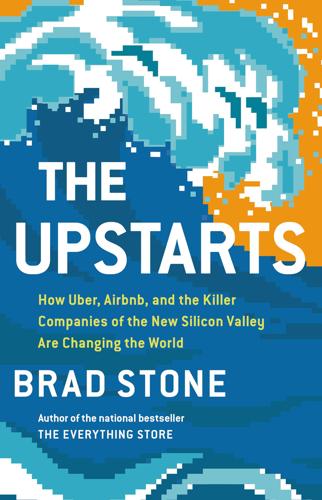
The Upstarts: How Uber, Airbnb, and the Killer Companies of the New Silicon Valley Are Changing the World
by
Brad Stone
Published 30 Jan 2017
By spending time at Justin.tv, the Airbnb founders got to see what a real tech startup looked like, one with real offices, real employees, and actual venture capital in the bank. (Justin.tv later spun off a video-game service, Twitch.tv, which was acquired by Amazon in 2014 for $970 million.) Continuing this education, they attended a one-day event called Startup School, organized by the startup incubator Y Combinator and hosted by Stanford University. The speakers that year included Amazon CEO Jeff Bezos and the investor Marc Andreessen, an inventor of the web browser. But the speech the founders remembered best was by Greg McAdoo, a venture capitalist at the top-tier VC firm Sequoia Capital, a man whom they would soon get to know well.
…
It did not propel the company to immediate success or generate any significant wealth; in fact, they were still barely making ends meet and began subsisting on the surplus Cap’n McCains. But it did demonstrate an extreme level of commitment and an ability to think creatively that, ultimately, would lead to their long-awaited break. A few weeks later, Chesky decided that the founders of the struggling company should apply to the prestigious Y Combinator startup school, which invested seventeen thousand dollars in each startup, took a 7 percent ownership stake, and surrounded founders with mentors and technology luminaries during an intense three-month program. It was a last-ditch effort and Chesky actually missed the application deadline by a day. Michael Seibel, an alumnus of the program (and later its CEO), had to ask the organizers to let the company submit late.
…
When Lin heard about the deal, he doubted Uber could ever work back at his home in Las Vegas. He had serious misgivings. “I just thought that founders who are passionate about the idea would run the company,” he says. But he ponied up anyway after trying out the service in San Francisco and deciding he’d rather not be left out. David Cohen, co-founder of the Colorado-based startup school Techstars, got a chance to invest only because of a geographic accident. Ryan Graves had to fly to Chicago that summer so he and Molly could ferry their possessions back across the country. On the drive to San Francisco, he made call after call, pitching UberCab so frequently that Molly could recite the spiel word for word.
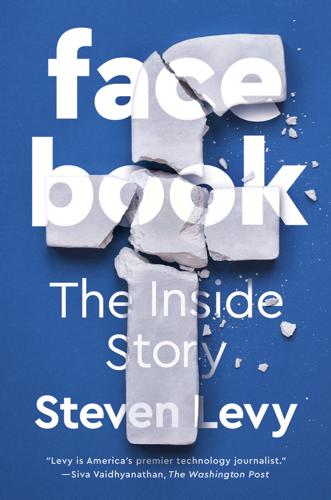
Facebook: The Inside Story
by
Steven Levy
Published 25 Feb 2020
“unfazed”: Matt Welsh blogged, “How I Almost Killed Facebook,” February 20, 2009. Harry Lewis: Alexis C. Madrigal, “Before It Conquered the World, Facebook Conquered Harvard,” The Atlantic, February 4, 2019. “There was nothing like that”: Interview with Y Combinator, “Mark Zuckerberg at Startup School 2013,” October 25, 2013, Zuckerberg Transcripts, 160. come from Microsoft: Interview with Y Combinator, “Mark Zuckerberg at Startup School 2012,” October 20, 2012, Zuckerberg Transcripts, 161. Saverin kicked in: Information about Eduardo Saverin is drawn from Kirkpatrick, The Facebook Effect; Mezrich, The Accidental Billionaires (Saverin cooperated with the book); and Nicholas Carlson, “How Mark Zuckerberg Booted His Co-Founder Out of the Company,” Business Insider, May 15, 2012.
…
Also, Lev Grossman, The Connector (TIME, 2010), ebook of Time magazine’s 2010 Person of the Year; and Kirkpatrick, The Facebook Effect. he did not object: Shaer, “The Zuckerbergs of Dobbs Ferry.” “My wife was a superwoman”: Ed Zuckerberg, WVOX radio interview. “Good Jewish mother”: Mark Zuckerberg at Y Combinator Startup School, 2011, Zuckerberg Transcripts, 76. When a magazine writer visited: Shaer, “The Zuckerbergs of Dobbs Ferry.” “If you were going to say no”: Ibid. “strong-willed and relentless”: Lev Grossman, The Connector, 98. “I’d go to school”: Bill Moggridge, “Designing Media: Mark Zuckerberg Interview” (MIT Press, 2010), Zuckerberg Videos, Video 36.
…
Chris Hughes: In addition to personal interview, Hughes tells his own story in Fair Shot: Rethinking Inequality and How We Learn (St. Martin’s Press, 2018). “People would just spend hours”: Interview with Sam Altman, Y Combinator, “Mark Zuckerberg: How to Build the Future,” August 16, Zuckerberg Transcripts, 171. steam coming from the suite’s bathroom: Interview with Y Combinator, “Mark Zuckerberg at Startup School 2013,” October 25, 2013, Zuckerberg Transcripts, 160. his first notice: S. F. Brickman, “Not So Artificial Intelligence,” Harvard Crimson, October 23, 2003. “a bitch”: The online journal cited here, and first published by Luke O’Brien in the online Harvard alumni journal 02138 in “Poking Facebook,” would become notorious in the movie The Social Network.
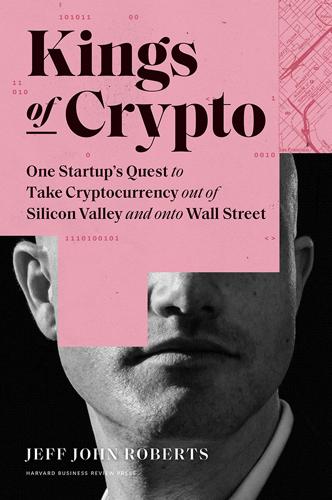
Kings of Crypto: One Startup's Quest to Take Cryptocurrency Out of Silicon Valley and Onto Wall Street
by
Jeff John Roberts
Published 15 Dec 2020
PART ONE * * * From Open Secret to Civil War 1 Brian Has a Secret Brian Armstrong stepped out of his car, felt soft California sunshine on his bald head, and smelled eucalyptus. He gazed at the façade of Y Combinator: the one-story building, just five miles from Google’s Mountain View campus, looked more like a sleepy suburban office park than a famous startup school that had educated the founders of Stripe, Dropbox, and other billion-dollar companies. Brian didn’t care about the place’s humdrum appearance. He knew who had gone there before him. The founders of Airbnb, a company he’d just left, had come out of Y Combinator, and so had the CEOs of other Silicon Valley stars like Doordash, Twitch, and Reddit.
…
He turned to the audience and shared his idea with the simple slogan: “Coinbase: The easiest way to get started with bitcoin.” It seemed so obvious—in retrospect. • • • Brian’s early insight into bitcoin would make him a billionaire. But it would cost him a friend. In that summer of 2012, Brian had not planned on going to Y Combinator alone, where one-man bands were discouraged. The startup school wanted cofounders. Plural. Despite Silicon Valley’s veneration of individual entrepreneurs, the reality is that tech startups, like so many creative endeavors, are very much a team sport—often a two-person partnership. In works like Collaborative Circles and Powers of Two, researchers have shown how genius is rarely solitary: John Lennon and Paul McCartney relied on each other to compose timeless Beatles hits; Pablo Picasso and Georges Braque used their brushes side by side to create Cubism; biologists James Watson and Francis Crick worked intensely together to discover the double helix and DNA.
…
The famous establishment closed in August of 2020.) In Brian’s case, he chose The Creamery because it was right across the street from the makeshift office he had rented at 1 Bluxome Street. He had wrapped up at Y Combinator a few months before with a bulging list of contacts and potential investors, while the startup school—as it does with everyone who enrolls—took 7 percent of his company. Still, Brian was very much alone, professionally and personally, when Fred replied to one of his bitcoin threads on Reddit. Fred had left Sunnyvale a few weeks before, where he had been bunking with old college friends, and was now living in San Francisco.

The Filter Bubble: What the Internet Is Hiding From You
by
Eli Pariser
Published 11 May 2011
execbios. 178 “come to Google because they choose to”: Greg Jarboe, “A ‘Fireside Chat’ with Google’s Sergey Brin,” Search Engine Watch, Oct. 16, 2003, accessed Dec. 16,2010, http://searchenginewatch.com/3081081. 178 “the future will be personalized”: Gord Hotckiss, “Just Behave: Google’s Marissa Mayer on Personalized Search,” Searchengineland, Feb. 23, 2007, accessed Dec. 16, 2010, http://searchengineland.com/just-behave-googles-marissa-mayer-on-personalized-search-10592. 179 “It’s technology, not business or government”: David Kirpatrick, “With a Little Help from his Friends,” Vanity Fair (Oct. 2010), accessed Dec. 16, 2010, www.vanityfair.com/culture/features/2010/10/sean-parker-201010. 179 “seventh kingdom of life”: Kevin Kelly, What Technology Wants (New York: Viking, 2010). 180 “shirt or fleece that I own”: Mark Zuckerberg, remarks to Startup School Conference, XConomy, Oct. 18, 2010, accessed Feb. 8, 2010, www.xconomy.com/san-francisco/2010/10/18/mark-zuckerberg-goes-to-startup-school-video//. 181 “ ‘the rest of the world is wrong’ ”: David A. Wise and Mark Malseed, The Google Story (New York: Random House, 2005), 42. 182 “tradeoffs with success in other domains”: Jeffrey M. O’Brien, “The PayPal Mafia,” Fortune, Nov. 14, 2007, accessed Dec. 16, 2010, http://money.cnn.com/2007/11/13/magazines/fortune/paypal_mafia.fortune/index2.htm. 183 sold to eBay for $1.5 billion: Troy Wolverton, “It’s official: eBay Weds PayPal,” CNET News, Oct. 3, 2002, accessed Dec. 16, 2010, http://news.cnet.com/Its-official-eBay-weds-PayPal/2100-1017_3-960658.html. 183 “impact and force change”: Peter Thie, “Education of a Libertarian,” Cato Unbound, Apr. 13, 2009, accessed Dec. 16, 2010, www.cato-unbound.org/2009/04/13/peter-thiel/the-education-of-a-libertarian. 183 “end the inevitability of death and taxes”: Chris Baker, “Live Free or Drown: Floating Utopias on the Cheap,” Wired, Jan. 19, 2009, accessed Dec. 16, 2010, www.wired.com/techbiz/startups/magazine/17-02/mf_seasteading?
…
Once you’re on the road to mass success and riches—often as a very young coder—there simply isn’t much time to fully think all of this through. And the pressure of the venture capitalists breathing down your neck to “monetize” doesn’t always offer much space for rumination on social responsibility. The $50 Billion Sand Castle Once a year, the Y Combinator start-up incubator hosts a daylong conference called Startup School, where successful tech entrepreneurs pass wisdom on to the aspiring audience of bright-eyed Y Combinator investees. The agenda typically includes many of the top CEOs in Silicon Valley, and in 2010, Mark Zuckerberg was at the top of the list. Zuckerberg was in an affable mood, dressed in a black T-shirt and jeans and enjoying what was clearly a friendly crowd.
…
PayPal PeekYou persuasion profiling Phantom Public, The (Lippmann) Philby, Kim Phorm Piaget, Jean Picasa Picasso, Pablo PK List Management Plato politics electoral districts and partisans and programmers and voting Popper, Karl postmaterialism predictions present bias priming effect privacy Facebook and facial recognition and genetic Procter & Gamble product recommendations Proulx, Travis Pulitzer, Joseph push technology and pull technology Putnam, Robert Qiang, Xiao Rapleaf Rather, Dan Raz, Guy reality augmented Reality Hunger (Shields) Reddit Rendon, John Republic.com (Sunstein) retargeting RFID chips robots Rodriguez de Montalvo, Garci Rolling Stone Roombas Rotenberg, Marc Rothstein, Mark Rove, Karl Royal Caribbean Rubel, Steve Rubicon Project Rumsfeld, Donald Rushkoff, Douglas Salam, Reihan Sandberg, Sheryl schemata Schmidt, Eric Schudson, Michael Schulz, Kathryn science Scientific American Scorpion sentiment analysis Sentry serendipity Shields, David Shirky, Clay Siegel, Lee signals click Simonton, Dean Singhal, Amit Sleepwalkers, The (Koestler) smart devices Smith, J. Walker social capital social graph Social Graph Symposium Social Network, The Solove, Daniel solution horizon Startup School Steitz, Mark stereotyping Stewart, Neal Stryker, Charlie Sullivan, Danny Sunstein, Cass systematization Taleb, Nassim Nicholas Tapestry TargusInfo Taylor, Bret technodeterminism technology television advertising on mean world syndrome and Tetlock, Philip Thiel, Peter This American Life Thompson, Clive Time Tocqueville, Alexis de Torvalds, Linus town hall meetings traffic transparency Trotsky, Leon Turner, Fred Twitter Facebook compared with Últimas Noticias Unabomber uncanny valley Upshot Vaidhyanathan, Siva video games Wales, Jimmy Wall Street Journal Walmart Washington Post Web site morphing Westen, Drew Where Good Ideas Come From (Johnson) Whole Earth Catalog WikiLeaks Wikipedia Winer, Dave Winner, Langdon Winograd, Terry Wired Wiseman, Richard Woolworth, Andy Wright, David Wu, Tim Yahoo News Upshot Y Combinator Yeager, Sam Yelp You Tube LeanBack Zittrain, Jonathan Zuckerberg, Mark Table of Contents Title Page Copyright Page Dedication Introduction Chapter 1 - The Race for Relevance Chapter 2 - The User Is the Content Chapter 3 - The Adderall Society Chapter 4 - The You Loop Chapter 5 - The Public Is Irrelevant Chapter 6 - Hello, World!
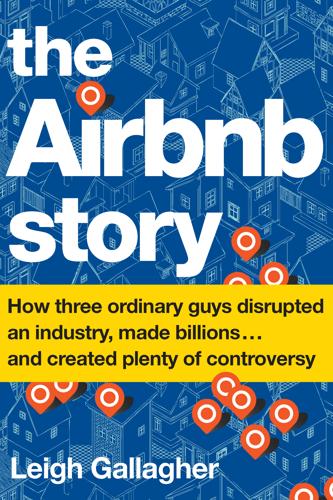
The Airbnb Story: How Three Ordinary Guys Disrupted an Industry, Made Billions...and Created Plenty of Controversy
by
Leigh Gallagher
Published 14 Feb 2017
v=03kSzmJr5c0. 20 losing their patient: Brian Chesky, “1000 days of AirBnB,” Startup School 2010, YouTube, uploaded February 12, 2013, https://www.youtube.com/watch?v=L03vBkOKTrc. 21 “have some please?”: “Obama O’s,” YouTube, uploaded January 12, 2012, https://www.youtube.com/watch?v=OQTWimfGfV8. 22 to launch Facebook: Lacy, “Fireside Chat.” 24 “‘I just ruined it,’” says Chesky: Ibid. 25 as Fortune called it: Leena Rao, “Meet Y Combinator’s New COO,” Fortune, August 26, 2015, http://fortune.com/2015/08/26/meet-y-combinators-new-coo/. 28 (log on to his account): Brian Chesky, “1000 days of AirBnB,” Startup School 2010, YouTube, uploaded February 12, 2013, https://www.youtube.com/watch?
…
That musician was David Rozenblatt, who was the touring drummer for Barry Manilow, and he forever changed AirBed & Breakfast’s business: His request led the cofounders to see that their business could have much bigger potential. They eliminated the breakfast requirement and added the option to rent an entire residence. (Giving a talk at Y Combinator’s Startup School, Chesky later recalled Rozenblatt calling him while he was backstage, complaining to Chesky through muted chants of “Barr-y! Barr-y!” that he couldn’t log on to his account.) Graham had noted the limitations of the company’s early model, too, and somewhere around this time, he suggested they remove “airbed” from the name to broaden its market potential.
…
With the Sequoia funding, they started paying themselves an annual salary—$60,000 each, which felt almost gluttonous after their days of milkless bowls of cereal. Chesky’s mother and father started, ever so slightly, to relax. None of them would ever forget how painful the struggle had been. “If you are successful, it will be the hardest thing you ever do,” Blecharczyk told YC’s Startup School in 2013. Chesky says he has now told the founding story hundreds of times, but there was a time when he didn’t think he’d ever tell it a second time. When I first met him, in 2012, I asked him to describe the lowest moment in his career. He said it was starting Airbnb. “It was exciting and in hindsight it’s nostalgic and romantic, but at the time it wasn’t at all.
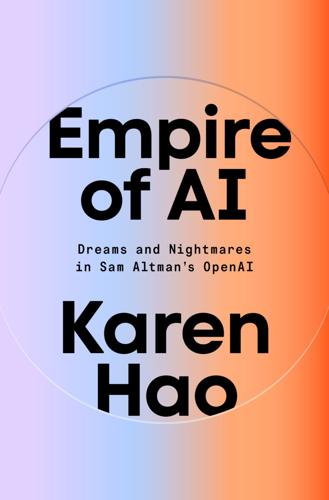
Empire of AI: Dreams and Nightmares in Sam Altman's OpenAI
by
Karen Hao
Published 19 May 2025
GO TO NOTE REFERENCE IN TEXT After learning that phones: Deepa Seetharaman, Keach Hagey, Berber Jin, and Kate Linebaugh, “Sam Altman’s Knack for Dodging Bullets—with a Little Help from Bigshot Friends,” Wall Street Journal, December 24, 2023, https://www.wsj.com/tech/ai/sam-altman-openai-protected-by-silicon-valley-friends-f3efcf68. GO TO NOTE REFERENCE IN TEXT “Work really hard”: “Sam Altman Startup School Video,” posted July 26, 2017, by Waterloo Engineering, YouTube, 1 hr., 18 min., 19 sec., youtu.be/4SlNgM4PjvQ. GO TO NOTE REFERENCE IN TEXT By late 2005, he: “Paper Chase,” Venture Capital Journal, December 1, 2006, venturecapitaljournal.com/paper-chase. GO TO NOTE REFERENCE IN TEXT After a seven-year run: Annie Massa and Vernal Galpotthawela, “Sam Altman Is Worth $2 Billion—That Doesn’t Include OpenAI,” Bloomberg, March 1, 2024, bloomberg.com/news/articles/2024-03-01/sam-altman-is-a-billionaire-thanks-to-vc-funds-startups.
…
GO TO NOTE REFERENCE IN TEXT Their bond was once described: Dwoskin et al., “ ‘King of the Cannibals.’ ” GO TO NOTE REFERENCE IN TEXT “The first piece of startup”: Sam Altman, “Growth and Government,” Sam Altman (blog), March 4, 2013, blog.samaltman.com/growth-and-government. GO TO NOTE REFERENCE IN TEXT “The thing that people”: “Sam Altman Startup School Video,” Waterloo Engineering. GO TO NOTE REFERENCE IN TEXT “Sustainable economic growth is”: Tyler Cowen, host, Conversations with Tyler, podcast, episode 61, “Sam Altman on Loving Community, Hating Coworking, and the Hunt for Talent,” Mercatus Center Podcasts, February 27, 2019.
…
GO TO NOTE REFERENCE IN TEXT Monopolies are good: “Competition Is for Losers with Peter Thiel (How to Start a Startup 2014: 5),” posted March 22, 2017, by Y Combinator, YouTube, 50 min., 27 sec., youtu.be/3Fx5Q8xGU8k. GO TO NOTE REFERENCE IN TEXT “I’ve heard a lot”: Sam Altman, “How Things Get Done,” Sam Altman (blog), July 17, 2013, blog.samaltman.com/how-things-get-done. GO TO NOTE REFERENCE IN TEXT “For startups I think”: “Sam Altman Startup School Video,” Waterloo Engineering. GO TO NOTE REFERENCE IN TEXT Over time he accumulated: Berber Jin, Tom Dotan, and Keach Hagey, “The Opaque Investment Empire Making OpenAI’s Sam Altman Rich,” Wall Street Journal, June 3, 2024, wsj.com/tech/ai/openai-sam-altman-investments-004fc785.
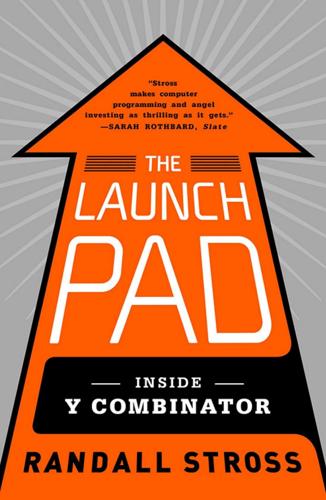
The Launch Pad: Inside Y Combinator, Silicon Valley's Most Exclusive School for Startups
by
Randall Stross
Published 4 Sep 2013
“Graduate Entrepreneurs Sell Business for Millions,” University of Oxford press release, May 7, 2008, www.ox.ac.uk/media/news_stories/2008/080507b.html. 20. HT, “Leaving Live Current and Vancouver,” HT blog, September 5, 2009, http://blog.harjtaggar.com/leaving-live-current-and-vancouver. 21. HT, “Post-Startup School Thoughts,” HT blog, October 6, 2009, http://blog.harjtaggar.com/post-startup-school-thoughts. 22. HT, “Auctomatic Is Acquired. Thank You Everyone Who Helped,” HT blog, March 27, 2008, http://blog.harjtaggar.com/auctomatic-is-acquired-thank-you-everyone-who. 23. HT answering Quora question: “What Does Harjeet Taggar’s Role at Y Combinator Entail, and How Did He Become Partner at 25?”
…
PG, “Startups in 13 Sentences,” February 2009, www.paulgraham.com/13sentences.html. 5. PG, “What We Look For in Founders,” October 2010, www.paulgraham.com/founders.html. 6. PG, “What Startups Are Really Like,” October 2009, http://paulgraham.com/really.html. This was based on a talk presented at the 2009 Startup School. PG surveyed YC alumni, asking what surprised them about starting a startup. 7. PG, “Student’s Guide.” 8. PG, “What We Look For.” 9. Jason Shen, “How to Find Awesome Startup Roommates,” Art of Ass-Kicking blog, February 22, 2011, www.jasonshen.com/2011/how-to-find-awesome-startup-roommates/.
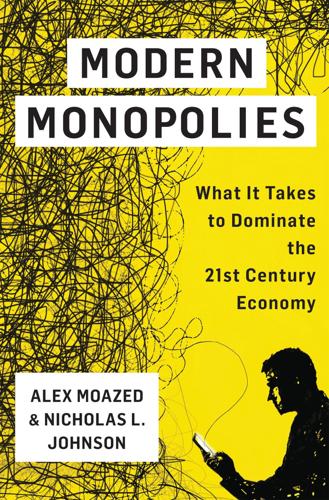
Modern Monopolies: What It Takes to Dominate the 21st Century Economy
by
Alex Moazed
and
Nicholas L. Johnson
Published 30 May 2016
For example, in a 2012 interview, Zuckerberg suggested that Facebook’s initial limited ambitions (starting out only at Harvard and expanding from school to school) played a big part in its eventual success. “It took a year for us to get to one million users and we thought it was incredibly fast,” he said. “I think having that time to baby was really helpful for us.” “Mark Zuckerberg at Startup School 2012,” YouTube, October 25, 2013, https://www.youtube.com/watch?v=5bJi7k-y1Lo. 25. Luz Lazo, “Uber Turns 5, Reaches 1 Million Drivers and 300 Cities Worldwide. Now What?” Washington Post, June 4, 2015, https://www.washingtonpost.com/news/dr-gridlock/wp/2015/06/04/uber-turns-5-reaches-1-million-drivers-and-300-cities-worldwide-now-what/. 26.
…
Nancy Jo Sales, “Tinder and the Dawn of the “Dating Apocalypse,” Vanity Fair, August 31, 2015, http://www.vanityfair.com/culture/2015/08/tinder-hook-up-culture-end-of-dating. 39. Julia Greenberg, “Tinder Completely Freaked Out on Twitter,” Wired, August 11, 2015 http://www.wired.com/2015/08/tinder-completely-freaked-twitter/. 40. These quotes come from a series of interviews Zuckerberg gave at Y Combinator’s Startup School from 2009 to 2013. You can find videos of the events online here: https://www.youtube.com/user/siwuzzz/videos. 41. Nick Summers, “Facebook’s ‘Porn Cops’ Are Key to Its Growth,” Newsweek, April 30, 2009, http://www.newsweek.com/facebooks-porn-cops-are-key-its-growth-77055. 42. For more, see danah boyd, “White Flight in Networked Publics?
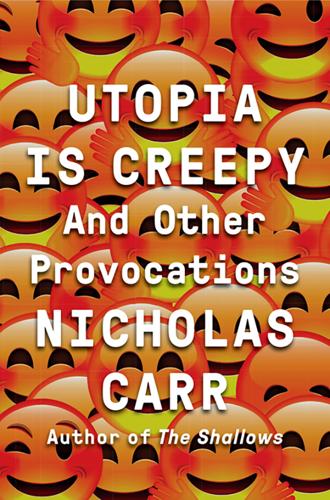
Utopia Is Creepy: And Other Provocations
by
Nicholas Carr
Published 5 Sep 2016
Jeff Bezos and Elon Musk dream of establishing Learyesque space colonies, celestial Burning Mans. Peter Thiel is slightly more down to earth. His Seasteading Institute hopes to set up floating technology incubation camps on the ocean, outside national boundaries. “If you can start a new business, why can you not start a new country?” he asks. In a speech last fall at the Y Combinator Startup School, venture capitalist Balaji Srinivasan channeled Leary when he called for “Silicon Valley’s Ultimate Exit”—the establishment of a new country beyond the reach of the U.S. government and other allegedly failed states. “You know, they fled religious persecution, the American Revolutionaries which left England’s orbit,” Srinivasan said, referring to the Pilgrims.
…
(Starr), 218 When We Are No More (Rumsey), 325–27 Whitman, Walt, 20, 183, 184 wicks, 229–30 Wiener, Anthony, 315 wiki, as term, 19 “wikinomics,” 84 Wikipedia, xvi, 21, 192 in fact-mongering, 58 hegemony of, 68 ideological split in, 18–20 slipshod quality of, 5–8 wiki-sects, 18 Wilde, Oscar, 174, 308 Williams, Anthony, 84 Wilson, Fred, 11 Windows Home Server, 32 Winer, Dave, 35 wings, human fascination with, 329–30, 335, 340–42 wingsuits, 341–42 Wired, xvii, xxi, 3, 4, 106, 156, 162, 174, 195, 232 Wittgenstein, Ludwig, 215 Wolf, Gary, 163 Wolf, Maryanne, 234 Wolfe, Tom, 170 work: as basis for society, 310–11, 313 in contemplative state, 298–99 efficiency in, 165–66, 237–38 job displacement in, 164–65, 174, 310 trivial alternatives to, 64 World Brain (Wells), 267 World Health Organization, 244 World of Warcraft, 59 Wozniac, Steve “Woz,” 32 Wright brothers, 299 writing: archiving of, 325–27 and invention of paper, 286–87 writing skills, changes in, 231–32, 234–35, 240 Xbox, 64, 93, 260 X-Ray Spex, 63 Yahoo, 67, 279–80 Yahoo People Search, 256 Y Combinator Startup School, 172 Yeats, William Butler, 88 Yelp, 31 Yosemite Valley, 341–42 youth culture, 10–11 as apolitical, 294–95 music and, 125 TV viewing in, 80–81 YouTube, 29, 31, 58, 75, 81, 102, 186, 205, 225, 314 technology marketing on, 108–9 Zittrain, Jonathan, 76–77 zombies, 260, 263 Zuckerberg, Mark, xvii, xxii, 53, 115, 155, 158, 215, 225 Facebook Q & A session of, 210–11, 213, 214 imagined as jackal, xv ALSO BY NICHOLAS CARR The Glass Cage The Shallows The Big Switch Does IT Matter?
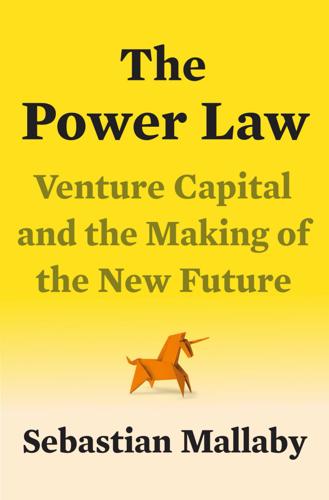
The Power Law: Venture Capital and the Making of the New Future
by
Sebastian Mallaby
Published 1 Feb 2022
BACK TO NOTE REFERENCE 61 Christine Lagorio-Chafkin, We Are the Nerds: The Birth and Tumultuous Life of Reddit, the Internet’s Culture Laboratory (New York: Hachette, 2018), 20. BACK TO NOTE REFERENCE 62 Paul Graham, “Paul Graham on Doing Things Right by Accident,” interview by Aaron Harris and Kat Manalac, Startup School Radio, Y Combinator (blog), Feb. 17, 2016, blog.ycombinator.com/paul-graham-startup-school-radio-interview/. BACK TO NOTE REFERENCE 63 Ohanian, Without Their Permission, 47–54. BACK TO NOTE REFERENCE 64 Lagorio-Chafkin, We Are the Nerds, 4. BACK TO NOTE REFERENCE 65 Graham, “Paul Graham on Doing Things Right by Accident.”
…
“You don’t have to wait until the final exam to find out if someone is a good student.” Leone, author interviews. BACK TO NOTE REFERENCE 31 Gandhi, interview by the author, May 17, 2019. BACK TO NOTE REFERENCE 32 Y Combinator, “Jim Goetz and Jan Koum at Startup School SV 2014,” YouTube, youtube.com/watch?v=8-pJa11YvCs. BACK TO NOTE REFERENCE 33 Later, the idea of tracking app store downloads was embraced by all Valley VCs, and the information was sold by a third-party provider. But at the time of the WhatsApp investment, Sequoia had an edge from its proprietary tracker.
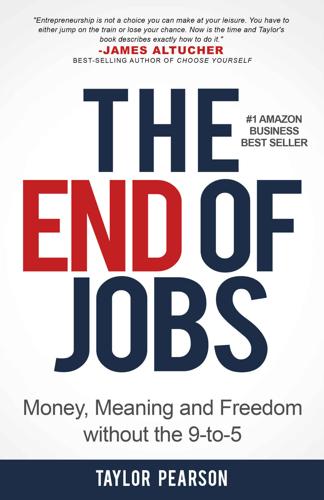
The End of Jobs: Money, Meaning and Freedom Without the 9-To-5
by
Taylor Pearson
Published 27 Jun 2015
By seeking more freedom and building it into our lives, we not only improve our ability to create more material wealth and make more money personally, but we also create more of it in the world at large. 13 More Meaning The Final Key to Wealth “I think when people are dancing on the edge of failure and they’re growing and there’s a void over there, but they keep moving forward, that’s when we feel alive as people.” Seth Godin, Startup School I stood in a friend’s backyard, shoulder aching and sore, hands almost totally numb. She’d gone out to a movie with her husband and I’d volunteered to watch their son. Her son, who had recently been diagnosed by teachers as being “incapable of paying attention,” spent three hours with me in the backyard running routes and incessantly asking me questions about football.

Without Their Permission: How the 21st Century Will Be Made, Not Managed
by
Alexis Ohanian
Published 30 Sep 2013
I wanted to know exactly whom I’d be working to prove wrong. My favorite piece of motivation would come a few months after we launched. We hustled a meeting with Google, thanks to a fortunate (albeit slightly strategic) seat I took beside Chris Sacca, Google’s head of special initiatives, at a dinner that Paul had organized after our first startup school. We hit it off well enough, and Chris sounded open to having Steve and me visit Mountain View the next time we were in town. Score. Once we had a meeting with Google, it seemed prudent to also try to schedule something with Yahoo!, too (I’m not sure what their share price will look like when you’re reading this book, but back in 2005 they were actively acquiring young teams that embraced popular technology, such as del.icio.us and Flickr).
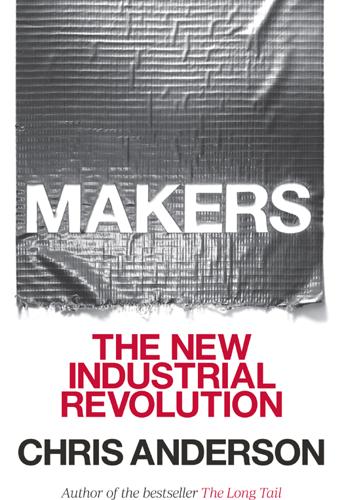
Makers
by
Chris Anderson
Published 1 Oct 2012
Maybe there will be a business model attached, or maybe there won’t. Maybe riches lie at the end of this rainbow, or maybe they don’t. But the point is that the path from “inventor” to “entrepreneur” is so foreshortened it hardly exists at all anymore. Indeed, startup factories such as Y Combinator now coin entrepreneurs first and ideas later. Their “startup schools” admit smart young people on the basis of little more than a PowerPoint presentation. Once admitted, the would-be entrepreneurs are given spending money, whiteboards, and desk space and told to dream up something worth funding in three weeks. Most do, which says as much about the Web’s ankle-high barriers to entry as it does about the genius of the participants.
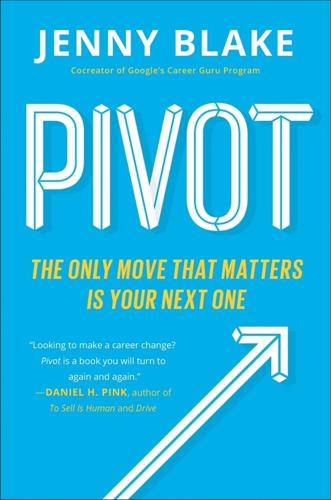
Pivot: The Only Move That Matters Is Your Next One
by
Jenny Blake
Published 14 Jul 2016
The best side hustles will demonstrate a monetary return on your investment, if not now, then at some point in the not-too-distant future. How long are you willing to wait? I suggest experimenting with a side hustle that allows you to test revenue generation fairly quickly. At first, the income you earn from your side hustle is likely to be labor intensive. You will invest time and sweat equity for little pay. In his Startup School podcast series, Seth Godin calls this “front-loading.” Better to do the hardest work up front, then reap the rewards later, he says, rather than be surprised down the road when you have much more at stake. 2. Market reach: Your side hustle should offer a solid amount of growth potential.
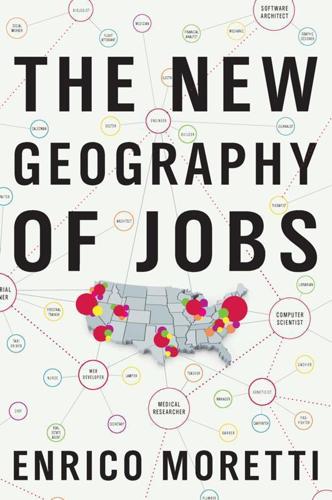
The New Geography of Jobs
by
Enrico Moretti
Published 21 May 2012
.” [>] For example, studies have shown: Baumgardner, “Physicians’ Services and the Division of Labor Across Local Markets.” [>] Think about the history of Facebook: In a recent interview, Zuckerberg criticized several aspects of Silicon Valley’s culture that he does not like but admitted that “Facebook would not have worked if I had stayed in Boston.” Interview at Y Combinator’s Startup School, October 29, 2011. [>] The size of labor markets: Wheeler, “Local Market Scale and the Pattern of Job Changes Among Young Men”; Bleakley and Lin, “Thick-Market Effects and Churning in the Labor Market.” [>] In a recent study of changing family structure: Costa and Kahn, “Power Couples.” [>] “where Ericsson has more than 1,200 employees”: Clark, “Overseas Tech Firms Ramp Up Hiring in Silicon Valley.” [>] One study finds that the likelihood: Sorenson and Stuart, “Syndication Networks and the Spatial Distribution of Venture Capital Investment.” [>] “to be closer”: Delo, “When the Car-Rental Fleet Is Parked in Your Driveway.” [>] “it is tough to get funding”: Gelles, “All Roads Lead to the Valley.” [>] “There’s a lot of support”: Interview, “The Changing Role of the Venture Capitalist,” Marketplace, NPR, January 18, 2011. [>] “to be close to the action”: Kissack, “Electric Vehicle Companies Tap Silicon Valley Cash.” [>] “Knowledge flows are invisible”: Quoted in Jaffe, Trajtenberg, and Henderson, “Geographic Localization of Knowledge Spillovers as Evidenced by Patent Citations.” [>] In 1993 three economists: Ibid. [>] Excluding citations that come from the same company: Thompson, “Patent Citations and the Geography of Knowledge Spillovers.” [>] “cricket spills over”: Lohr, “Silicon Valley Shaped by Technology and Traffic.” [>] Citations are highest: Belenzon and Schankerman, “Spreading the Word.” [>] Geographical distance seems to impede: Adams and Jaffe, “Bounding the Effects of R&D.” [>] Pierre Azoulay, Joshua Graff Zivin, and Jialan Wang: Azoulay, Graff Zivin, and Wang, “Superstar Extinction.” [>] When a team of Harvard Medical School doctors: Lee, Brownstein, Mills, and Kohane, “Does Collocation Inform the Impact of Collaboration?”
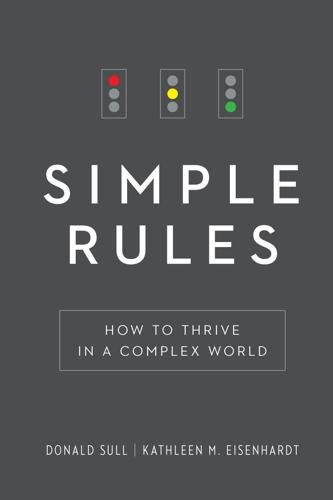
Simple Rules: How to Thrive in a Complex World
by
Donald Sull
and
Kathleen M. Eisenhardt
Published 20 Apr 2015
. [>] Maybe you even know: Alex Konrad and Ryan Mac, “Airbnb Cofounders to Become First Sharing Economy Billionaires as Company Nears $10 Billion Valuation,” Forbes, March 20, 2014, http://www.forbes.com/sites/alexkonrad/2014/03/20/. [>] You may not, however: Kathy especially thanks Florence Koskas for sharing her thoughts and bibliography. Two revealing firsthand video accounts from the founders are “1000 Days of Airbnb, Airbnb Founder—Brian Chesky—Startup School 2010,” 2010, www.youtube.com, accessed September 19, 2014; and “Joe Gebbia—The Airbnb Story,” 2013, www.youtube.com, accessed September 19, 2014. See also Matt Vella and Ryan Bradley, “Airbnb CEO—‘Grow Fast but not Too Fast,’” Fortune, July 18, 2012, http://fortune.com/2012/07/18/. [>] Joe Gebbia and Brian Chesky: Jared Tame, “From Toilet Seats to $1 Billion: Lessons from Airbnb’s Brian Chesky,” in Startups Open Sourced: Stories to Inspire & Educate, May 30, 2011. [>] When the two friends: Jessica Salter, “Airbnb: The Story Behind the $1.3bn Room-Letting Website,” Telegraph, September 7, 2012, http://www.telegraph.co.uk/technology/news/9525267/Airbnb-The-story-behind-the-1.3bn-room-letting-website.html. [>] Because of the success: Ibid. [>] Y Combinator is a “seed accelerator”: Benjamin L.
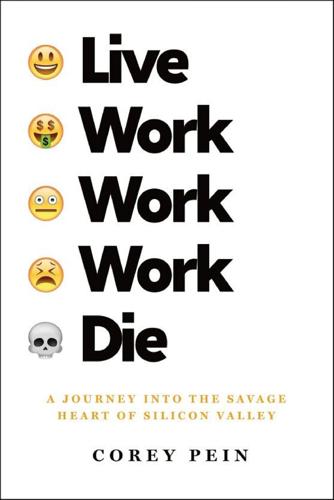
Live Work Work Work Die: A Journey Into the Savage Heart of Silicon Valley
by
Corey Pein
Published 23 Apr 2018
They could be regions of the world set aside by global agreement for experimentation, as discussed by Larry Page. They could be floating cities in international waters as put forth by Peter Thiel, or one of the more ambitious 80,000 person colonies on Mars desired by Elon Musk. Srinivasan set what was then a new record in techie temerity with a provocative speech at Y Combinator’s “startup school” in 2013. The speech laid out a plan for what Srinivasan called “Silicon Valley’s ultimate exit,” a way to “reduce the importance of decisions made in D.C.”—in short, to undermine the government for the benefit of tech companies. “It basically means: build an opt-in society—ultimately outside the United States—run by technology,” he said.
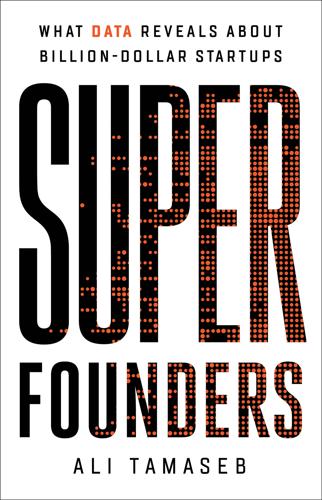
Super Founders: What Data Reveals About Billion-Dollar Startups
by
Ali Tamaseb
Published 14 Sep 2021
Founders Say Sometimes,” Medium, June 10, 2018, https://medium.com/hackernoon/do-vcs-really-add-value-founders-say-sometimes-f27bb956eb8c. 4. Paul Gompers, William Gornall, Steven N. Kaplan, and Ilya A. Strebulaev, “How Do Venture Capitalists Make Decisions?” National Bureau of Economic Research, September 1, 2016, www.nber.org/papers/w22587. 5. Startup School, “How to Raise Money,” video, October 21, 2014, https://startupclass.samaltman.com/courses/lec09/. 6. Leo Polovets, “Startups Are Risk Bundles,” Codingvc (blog), March 3, 2016, www.codingvc.com/startups-are-risk-bundles/. 7. Sam Altman, “Lecture 9: How to Raise Money (Marc Andreessen, Ron Conway, Parker Conrad),” How to Start a Startup, October 21, 2014, https://startupclass.samaltman.com/courses/lec09/. 8.
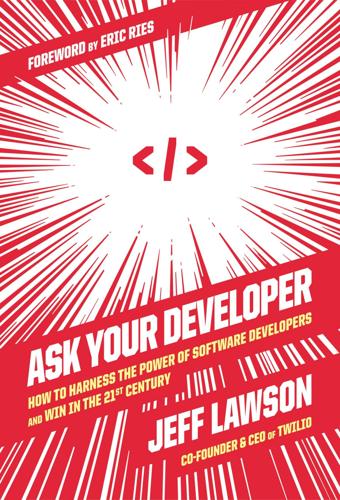
Ask Your Developer: How to Harness the Power of Software Developers and Win in the 21st Century
by
Jeff Lawson
Published 12 Jan 2021
Bowers, my high school radio teacher, who let a bunch of high school students run “Metro Detroit’s most powerful high school radio station, 88.1FM WBFH: The Biff.” Thank you for letting us make mistakes. That’s truly what learning is all about. Kevin O’Connor, thank you for being an entrepreneurial mentor and Hamptons landlord. You truly created the “startup school of the hard knocks” that helped me become the founder I am. Sorry I never made you any money, though. Thank you to Matt Levenson, my partner in building Versity, StubHub, and Nine Star. Thank you for inspiring the Ask Your Developer mindset. You taught me how to use software to solve great business problems.
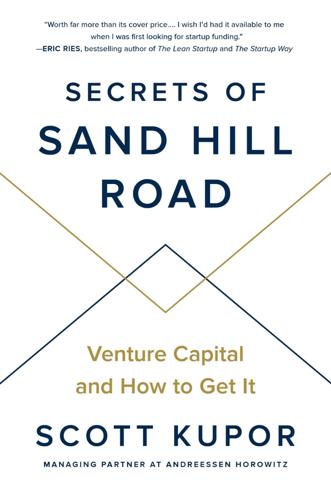
Secrets of Sand Hill Road: Venture Capital and How to Get It
by
Scott Kupor
Published 3 Jun 2019
As a startup, these changes are very significant, as they mean that the amount of money you need to raise from VCs to get started is much less than in the past. Y Combinator Cracks Open the “Black Box” The second material transformation in the startup ecosystem was the advent of an incubator known as Y Combinator (or YC for short). Started in 2005 by Paul Graham and Jessica Livingston, YC basically created startup school. Cohorts of entrepreneurs joined a “YC batch,” working in an open office space together and going through a series of tutorials and mentorship sessions over a three-month period to see what might come out the other end. Over the past thirteen years, YC has turned out nearly 1,600 promising startups, including some very well-known success stories such as Airbnb, Coinbase, Instacart, Dropbox, and Stripe.

Supremacy: AI, ChatGPT, and the Race That Will Change the World
by
Parmy Olson
Washington Post, December 23, 2023. Friend, Tad. “Sam Altman’s Manifest Destiny.” New Yorker, October 3, 2016. Graham, Paul. “Five Founders.” paulgraham.com, April 2019. Graham, Paul. “How to Start a Startup.” paulgraham.com, March 2005. “How and Why to Start a Startup—Sam Altman & Dustin Moskovitz—Stanford CS183F: Startup School.” Stanford Online’s YouTube channel, April 5, 2017. “Paul Graham on Why Sam Altman Took Over as President of Y Combinator in 2014.” This Week in Startups Clips’s YouTube channel, March 19, 2019. Regalado, Antonio. “A Startup Is Pitching a Mind-Uploading Service that Is ‘100 Percent Fatal.’” MIT Technology Review, March 13, 2018.
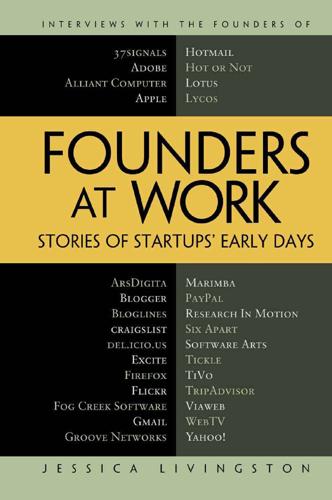
Founders at Work: Stories of Startups' Early Days
by
Jessica Livingston
Published 14 Aug 2008
Paul Graham Cofounder, Viaweb Preface It’s been more than a year since Founders at Work was first published. What have I learned since? The biggest surprise has been the sheer number of people interested in startups. I know about the ones who apply to Y Combinator, read Hacker News, or attend Startup School, but I could never be sure how many people were interested in startups beyond that core of would-be founders. A lot, it turns out. I get emails and see blog posts about Founders at Work on an almost daily basis. Some people finally took the plunge and started a startup, some learned that it was all right to change their idea, some were able to face a new day even though their company seemed doomed.
…
About the Author Jessica Livingston is a founding partner at Y Combinator, a seed-stage venture firm based in Cambridge, MA, and Mountain View, CA. Previously she was vice president of marketing at investment bank Adams Harkness. In addition to her work with startups at Y Combinator, Livingston organizes Startup School (www.startupschool.org). She has a BA in English from Bucknell. xiii Acknowledgments I’d first like to thank my aunt, Ann Gregg, for her unfailing support and encouragement. She’s an extraordinarily perceptive reader and she provided a lot of advice that helped make this a better book. Thanks to the people I interviewed for sharing their stories and their time.
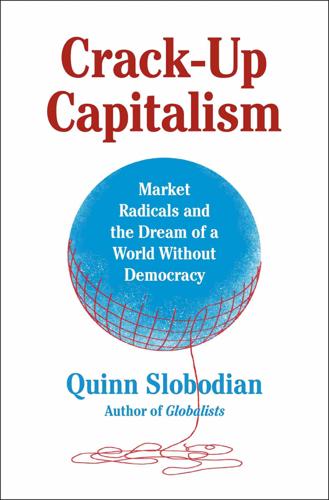
Crack-Up Capitalism: Market Radicals and the Dream of a World Without Democracy
by
Quinn Slobodian
Published 4 Apr 2023
Jathan Sadowski, “The Internet of Landlords: Digital Platforms and New Mechanisms of Rentier Capitalism,” Antipode 52, no. 2 (March 2020): 562–80. 19. “Innovators Under 35,” MIT Technology Review (2013), https://www.technologyreview.com/innovators-under-35/2013/. 20. Balaji Srinivasan, “Silicon Valley’s Ultimate Exit,” Y Combinator Startup School, October 25, 2013, https://www.youtube.com/watch?v=cOubCHLXT6A. 21. Drew Olanoff, “Google CEO Larry Page Shares His Philosophy at I/O: ‘We Should Be Building Great Things That Don’t Exist,’” TechCrunch, May 15, 2013, https://techcrunch.com/2013/05/15/google-ceo-larry-page-takes-the-stage-at-ceo-to-wrap-up-the-io-keynote/. 22.
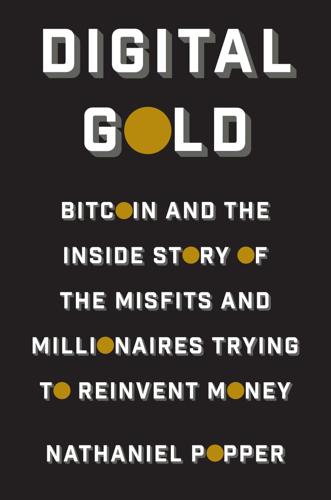
Digital Gold: Bitcoin and the Inside Story of the Misfits and Millionaires Trying to Reinvent Money
by
Nathaniel Popper
Published 18 May 2015
pagewanted=all. 291Hoffman later introduced Thiel to Mark Zuckerberg: David Kirkpatrick, The Facebook Effect (New York: Simon & Schuster, 2010). 294“The gulf between what the press and many”: Marc Andreessen, “Why Bitcoin Matters,” DealBook, New York Times, January 21, 2014, http://dealbook.nytimes.com/2014/01/21/why-bitcoin-matters/. 295He believed that it could help open the door: A transcript of Balaji’s talk at Startup School 2013 is available at https://nydwracu.word press.com/2013/10/28/transcript-balaji-srinivasan-on-silicon-valleys-ultimate-exit/. 299The prosecutors had e-mails in which: Sealed complaint against Charlie Shrem filed by IRS Special Agent Gary Alford, January 24, 2014. 300“If you want to develop a virtual currency”: The press release announcing Charlie’s arrest is available at http://www.justice.gov/usao/nys/pressreleases/January14/SchremFaiellaChargesPR.php. 303told CNBC in late January: Jamie Dimon, interviewed on CNBC, January 23, 2014.
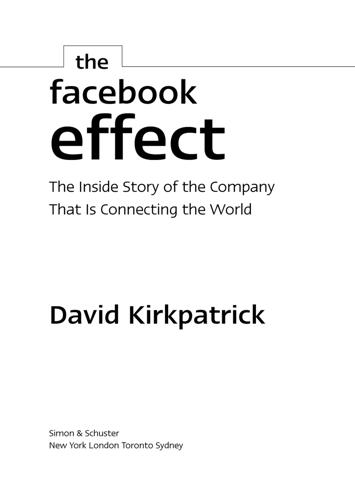
The Facebook Effect
by
David Kirkpatrick
Published 19 Nov 2010
Fall 2005 Page 149 As the school year resumed in the fall of 2005: Michael Arrington, “85% of College Students Use Facebook,” TechCrunch, September 7, 2005, www.techcrunch.com/2005/09/07/85-of-college-students-use-facebook/ (accessed November 15, 2009). 151 One new group was called “You’re Still in High School … ”: John Cassidy, “Me Media: How Hanging Out On The Internet Became Big Business,” New Yorker, May 15, 2006, http://www.newyorker.com/archive/2006/05/15/060515fa_fact_cassidy (accessed December 11, 2009). 151 At the beginning of the school year, Facebook had nearly doubled: Owen Van Natta, interview with author, May 15, 2007. 152 Ever vigilant about competitors: Angwin, Stealing MySpace, 140, 177. 153 Zuckerberg was dismissive: Ibid., 177. 156 By early 2010 Facebook was hosting: email from Brandee Barker, Facebook public relations, February 24, 2010. 8. The CEO Page 166 “I want to stress the importance of being young”: Mark Coker, “Start-Up Advice For Entrepreneurs, From Y Combinator Startup School,” Venturebeat, March 26, 2007, http://venturebeat.com/2007/03/26/start-up-advice-for-entrepreneurs-from-y-combinator-start-up-school/ (accessed November 28, 2009). 169 But at the end of March, BusinessWeek’s online edition: Steve Rosenbush, “Facebook’s on the Block,” BusinessWeek, March 28, 2006, http://www.businessweek.com/technology/content/mar2006/tc20060327_215976.htm (accessed November 15, 2009). 170 But to Zuckerberg, what was more significant: Ibid. 171 Another imitator, which launched around the same time in China: Baloun, Inside Facebook, 95. 173 He also quoted a sociologist who speculated: Cassidy, “Me Media.” 174 who he had met while: Lacy, 162. 174 After some negotiation, Zuckerberg: Lacy, 162. 176 A week after the program launched: Rob Walker, “A For-Credit Course,” New York Times, September 30, 2007, http://www.nytimes.com/2007/09/30/magazine/30wwInconsumed-t.html (accessed December 27, 2009). 177 As part of the deal the ad giant: email from Brandee Barker, Facebook public relations, December 11, 2009. 9. 2006 Page 184 Peter Thiel, older but very sympathetic: Lacy, 165. 186 Some nights, unable to sleep: David Kushner, “The Baby Billionaires of Silicon Valley,” Rolling Stone, November 16, 2006, http://rollingstone.com/news/story/12286036/the_baby_billionaires_of_silicon_valley (accessed November 28, 2009). 186 “I hope he doesn’t sell it”: Kevin Colleran, interview with the author. 190 Within about three hours the group’s membership: Tracy Samantha Schmidt, “Inside the Backlash Against Facebook,” Time, September 6, 2006, www.time.com/time/nation/article/0,8599,1532225,00.html (accessed December 11, 2009). 190 And there were about five hundred other protest groups: Brandon Moore, “Student users say new Facebook feed borders on stalking,” Arizona Daily Wildcat, September 8, 2006, http://wildcat.arizona.edu/2.2257/student-users-say-new-facebook-feed-borders-on-stalking-1.177273 (accessed December 11, 2009). 190 “Chuck Norris come save us”: Layla Aslani, “Users Rebel Against Facebook Feature,” Michigan Daily, September 7, 2006, http://www.michigandaily.com/content/users-rebel-against-facebook-feature (accessed December 11, 2009). 190 “You shouldn’t be forced to have a Web log”: Moore, “Student Users.” 190 “I’m really creeped out”: Aslani, “Users Rebel.” 191 But Zuckerberg, in New York on a promotional trip: Andrew Kessler, “Weekend Interview with Facebook’s Mark Zuckerberg,” Wall Street Journal, March 24, 2007, http://www.andykessler.com/andy_kessler/2007/03/wsj_weekend_int.html (accessed December 11, 2009). 10.
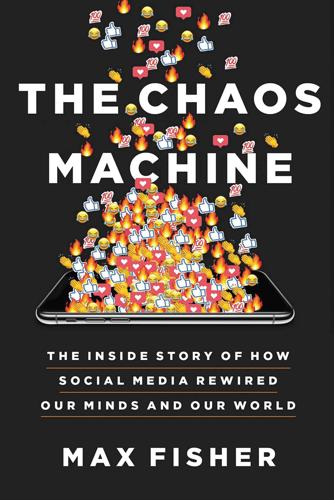
The Chaos Machine: The Inside Story of How Social Media Rewired Our Minds and Our World
by
Max Fisher
Published 5 Sep 2022
Which Is Like, You Have Someone on the Front Lines That’s Just Saying Something That’s Inappropriate.” 4 “Why are most chess masters”: “Startup Advice for Entrepreneurs from Y Combinator,” Mark Coker, VentureBeat, March 26, 2007. 5 “in software, you want to invest”: “The Hardest Lessons for Startups to Learn,” talk by Paul Graham to Y Combinator Startup School, April 2006. 6 The perks were intended: The Code: Silicon Valley and the Remaking of America, Margaret O’Mara, 2019: 201, 271–272. 7 “spent a few years”: Zucked: Waking Up to the Facebook Catastrophe, Roger McNamee: 2019: 48. 8 “Their impact transformed”: Ibid. 9 “I no longer believe”: “The Education of a Libertarian,” Peter Thiel, CatoUnbound.com, April 13, 2009. 10 corporation-run floating cities: “Mouthbreathing Machiavellis Dream of a Silicon Reich,” Corey Pein, The Baffler, May 19, 2014. 11 incumbents: A widely used term of art, it is referenced, for example, in “The History of Progress Is a History of Better Monopoly Businesses Replacing Incumbents,” Zero to One, Thiel and Masters, 2014: 33. 12 “This problem is one”: Open Hearing on Foreign Influence Operations’ Use of Social Media Platforms, Select Committee on Intelligence of the United States Senate, August 1, 2018. 13 “Responsibility for the”: Ibid. 14 “One of the biggest issues social”: “A Blueprint for Content Governance and Enforcement,” Mark Zuckerberg, Facebook, November 15, 2018. www.facebook.com/notes/751449002072082 15 “even when they tell us”: Ibid. 16 overhauled its algorithm: “Facebook Overhauls News Feed in Favor of ‘Meaningful Social Interactions,’” Julia Carrie Wong, The Guardian, January 11, 2018. 17 Likes were worth one point: “Five Points for Anger, One for a ‘Like’: How Facebook’s Formula Fostered Rage and Misinformation,” Jeremy B.
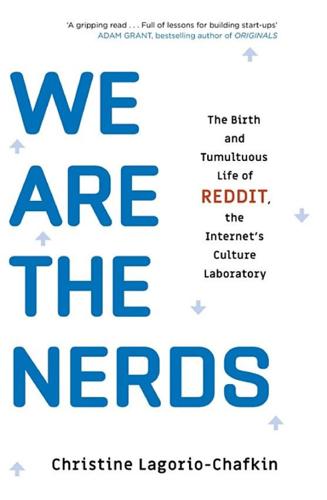
We Are the Nerds: The Birth and Tumultuous Life of Reddit, the Internet's Culture Laboratory
by
Christine Lagorio-Chafkin
Published 1 Oct 2018
It had another feature beneficial to the startup life, in which a company launched from a living room couch might still be growing strong two decades later, or dead within weeks: month-to-month leases. “We basically told everyone to move there,” Kan explained. Matt Brezina and Adam Smith, who’d entered Y Combinator’s new “startup school,” Graham’s West Coast autumn version of the summer incubator, with their startup dubbed Xobni (a “smarter address book”—its name is “in-box” spelled backwards), crashed on Kan’s floor for a couple weeks before moving to their own apartment a couple floors down. Summer 2006 YC graduates Trip Adler and Jared Friedman, who were starting Scribd, also took an apartment.
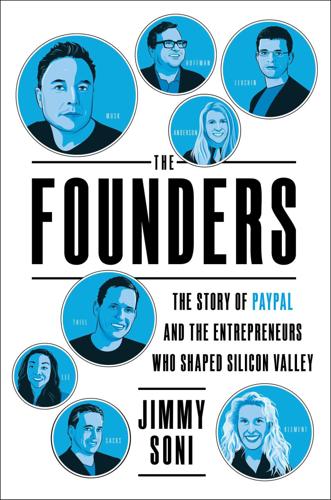
The Founders: The Story of Paypal and the Entrepreneurs Who Shaped Silicon Valley
by
Jimmy Soni
Published 22 Feb 2022
“We were very forthright”: Author interview with Colin Catlan, April 5, 2019. “It’s incredibly exciting”: Peter Thiel interview with Dave Rubin of The Rubin Report, September 12, 2018, https://www.youtube.com/watch?v=h10kXgTdhNU. “We thought”: Author interview with Yu Pan, July 24, 2018. “couldn’t afford AAA”: Max Levchin—Startup School 2011, https://www.youtube.com/watch?v=9R2xgM-pu18. “It was very much”: Author interview with Max Levchin, June 29, 2018. “Elon had already”: Author interview with Jack Selby, October 30, 2018. “Peter likes to confront”: Author interview with Luke Nosek, May 31, 2018. “Peter was good”: Author interview with John Malloy, July 25, 2018.
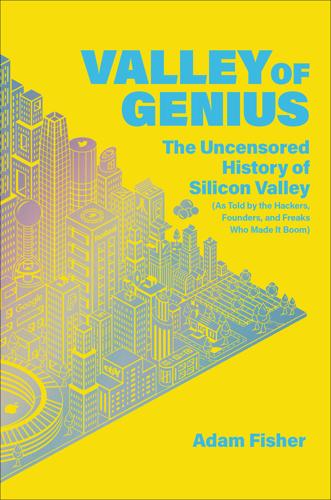
Valley of Genius: The Uncensored History of Silicon Valley (As Told by the Hackers, Founders, and Freaks Who Made It Boom)
by
Adam Fisher
Published 9 Jul 2018
Susan Wojcicki’s quotes can be found in Jefferson Graham’s USA Today story, “The House That Helped Build Google,” in July 2007. I’m CEO… Bitch Mark Zuckerberg’s quotes come from a guest lecture he gave to Harvard’s “Introduction to Computer Science” class in 2005, from an interview he gave to the Harvard Crimson in February that same year, and from Y Combinator’s Startup School event in 2007. Dustin Moskovitz’s quotes were taken from a keynote address given to the Alliance of Youth Movements Summit in December 2008, and from David Kirkpatrick’s authoritative history, The Facebook Effect. David Choe’s comments were made on The Howard Stern Show in March 2016. Steve Jobs made his remarks to his biographer, Walter Isaacson.
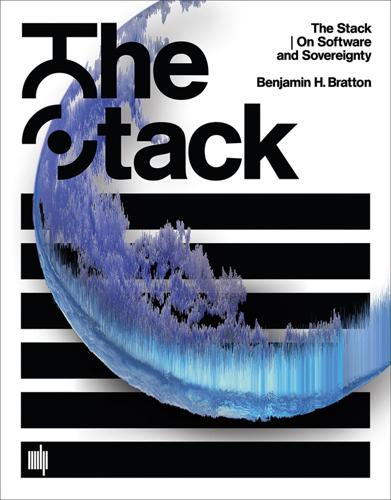
The Stack: On Software and Sovereignty
by
Benjamin H. Bratton
Published 19 Feb 2016
See http://www.crimethinc.com/texts/ex/digital-utopia.html, https://www.youtube.com/watch?v=cOubCHLXT6A, and http://www.ftc.gov/sites/default/files/documents/public_statements/promoting-internet-inclusion-more-things-more-people/140107ces-iot.pdf. 32. Balaji Srinivasa, “Silicon Valley's Ultimate Exit,” speech at the Y Combinator Startup School, De Anza College, Cupertino, CA, October 25, 2013, https://www.youtube.com/watch?v=cOubCHLXT6A. “Peacefully start an international (1) company, (2) community, (3) currency, (4) country. We are now at step 3.” (@balajis, January 3, 2014. 33. Albert O. Hirschman, Exit, Voice, and Loyalty; Responses to Decline in Firms, Organizations, and States (Cambridge, MA: Harvard University Press, 1970). 34.